EDI Team and Committee
EDI team
FHSD has two key roles in supporting EDI projects and initiatives. The EDI Advisor to the Dean and EDI Coordinator operate at both the Faculty and School levels.
EDI Committee
The EDI committee provides leadership and guidance on the implementation of strategic plans and reports, and the advancement of decolonization, equity, diversity, and inclusion, within learning, teaching, research and administrative activities specific to FHSD.
As educators and researchers of future health care providers and as healthcare professionals, we envision an equitable and accessible health care system where respect, humanity, dignity, and compassion are embedded in all procedures, interactions, and operations.
COMMITTEE MEMBERS
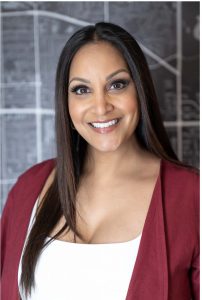
Rishma Chooniedass (She/Her), FHSD EDI Advisor to the Dean and committee chair
Rishma believes that as educators and global citizens, everyone has a responsibility to promote equity, diversity, and inclusion in admissions and hiring, curriculum development, and campus culture. Prioritizing Indigenization, decolonization, equity and justice is crucial for transforming academic culture. Visit Rishma’s profile to learn more
Natalia Peñuela Gallo (she/her), FHSD EDI Coordinator
Natalia is an uninvited settler on the stolen and currently occupied territory of the syilx Okanagan nation. Born and raised in Colombia, she feels honoured to live, learn and work on Indigenous lands. Natalia is passionate about Justice, Respect and Reciprocity. Her inspiration stems from the extraordinary voices of resilience and resistance, embodied by those who have historically worked to create a better world. Visit Natalia’s profile to learn more
Ashley Sandrasagra
Ashley grew up as a settler of colour on traditional Mississauga of the New Credit First Nation land. She is a graduate student pursuing a Master’s in Social Work at the University of British Columbia Okanagan, with a strong focus on social justice advocacy, community engagement, student leadership, and social policy. She is committed to supporting underrepresented, marginalized, and racialized communities through both academic and professional experiences. Her social work practice in social policy thus far has been centered around issues of equity, diversity, and inclusion; the full participation and citizenship of people with disabilities; incorporating learnings from anti-oppressive and anti-racist practice; developing anti-colonial learning materials; and developing/implementing community-based/community-led initiatives.
Paige Reekie
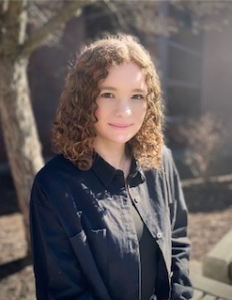
Paige is a fifth year Human Kinetics student who was raised on the Sylix Okanagan territory. She is passionate about creating an environment in which everyone is able to be their truest selves without fear of harassment or judgement. Through her experience of living with a movement disorder, she hopes to help educate others on the importance of equity, diversity, and accessibility both within the university and greater community.
Madden Brewster (SHE/HER)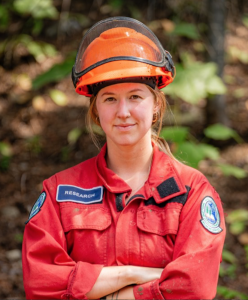
Dr. Madden Brewster grew up as an uninvited guest on the traditional, ancestral and unceded land of the Anikituwagi, more commonly known as the Cherokee Nation, of the Shaconage mountains in western North Carolina. She is grateful to learn from the Salish Unit Crew, the only remaining entirely indigenous firefighter crew within the BC Wildfire Service through her postdoctoral work. Madden believes that equity, diversity and inclusion should be an intentional daily practice and that individuals with power and privilege should bear the brunt of EDI implementation. She is particularly interested in encouraging EDI in the research space and is devoted to continually learning from diverse perspectives.
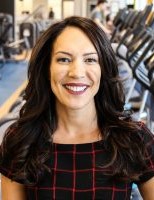 Mary Jung (she/her)
Mary Jung (she/her)
Dr. Mary Jung is a second-generation Canadian of Chinese and Ukrainian mixed ancestry. She was born and raised on the territories of the Anishinabewaki, Wendake-Nionowentsio, Haudenosaunee, and Mississauga peoples. Personal experiences of racism continue to act as motivators for her passions and interest in advancing EDI in academia, and broader community. Visit Mary’s profile to learn more
 Laura Mercer
Laura Mercer
Laura is a registered nurse with a master of science in nursing. As an educator with the UBCO School of Nursing, she acknowledges her responsibility to the public and to her students. She strives to equip students entering health care with knowledge and strategies to provide safe and individualized nursing care to all patients. She hopes to be an advocate for students and patients, a leader for EDI education, and a role model for students. Visit Laura’s profile to learn more
Alicia Belmont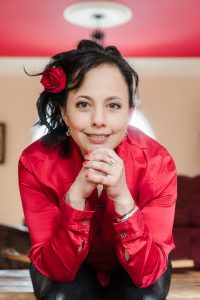
My multicultural growth comes from my experiential journey with immigration. Living in three different countries, I have gained a unique perspective on how equity, diversity and inclusion (EDI) are perceived and applied in each setting. I have lived in areas around Indigenous groups in Mexico, Nunavik, Canada, and the Māori in New Zealand. Over the years, I have had the opportunity to work with people from diverse backgrounds, with various cultures, beliefs and languages. As language translates emotions, I believe that bilingualism not only helps to build empathy and respect, but also fosters connection between cultures. These experiences not only helped me to better understand and appreciate differences, but also helped shed light on the challenges and success in diverse regions.
I believe that EDI begins with each of us. It is the mindset that requires a compassionate outlook. We need to learn from each other and do our best to improve.
